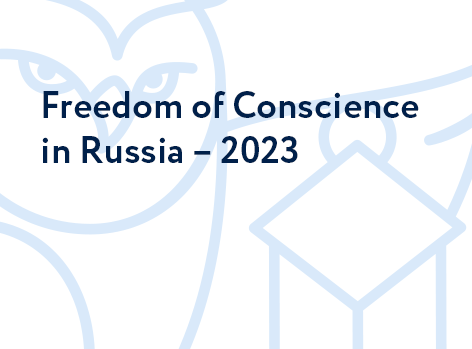Our monthly review addresses xenophobia, radical nationalism, and the state’s reactions for the month of January 2011. The contents of the report are excerpted from the results of SOVA Center’s daily monitoring activities.
We ask the reader to keep in mind that the numbers stated here – which are the most current available to SOVA – will inevitably increase. As an example, due to updated statistics we now know the number of people attacked and killed in January 2010 is nearly triple the number stated in our January 2010 monthly review.
In January 2011, no fewer than 14 people were victims of racist and neo-Nazi attacks – 3 of these were killed and 11 sustained injuries. The violent incidents took place in Moscow – 9 injured, 1 killed; Voronezh – 3 injured; St. Petersburg – 1 killed; and Samara – 1 killed. As in the past, the main targets of attack continue to be people from Central Asia, 6 of whom were attacked, and 2 killed.
The issue of Neo-Nazi terror resurfaced in January 2011 when the deputy director of the Agency of Journalistic Investigation received threats by mail from the so-called Combat Organization of Russian Nationalists (BORN).
Three convictions were made in cases of hate-motivated violence. The first sentence came from a case in Tula regarding the 2005 attack of a citizen of Cameroon. The second was in Protvino, in the Moscow region. The case tried the leader of the local DPNI chapter, who is accused of – among other things – the fatal assault of a Tajik in summer 2009. The third case in question brought convictions against seven individuals accused of attacking a group of bicyclists in Irkutsk in May 2009. One individual was sentenced to two years in an “open prison,” a penitentiary for individuals convicted of crimes of negligence or minor severity. Another individual in the same case was sentenced to two and a half years in a penal colony, while the five others received suspended sentences. One of those was the Protvino DPNI leader who, according to the Investigative Committee at the Prosecutor's Office, fully admitted his guilt but struck a deal with the investigation.
Additionally, a case that had previously left out the hate motive was concluded. The verdict addressed the November 2009 murder of a Kyrgyz national in the Moscow region.
At least two convictions were made for distribution of xenophobic propaganda (Article 282 of the Criminal Code): one in Kogalym in the Khanty-Mansi Autonomous Okrug, and the other in Naberezhnye Chelny in Tatarstan. Sentences were brought against five individuals total: three were given a year in open prison; one, forced labor; and one, probation.
The Federal List of Extremist Materials was updated three times in January 2011, on the 18th, 21st, and 23rd; paragraphs 749 – 763 were added. The updates included anti-Semitic articles, Islamist texts, anti-Caucasian videos, Jehovah’s Witnesses materials, and ethnographic essays containing anti-Russian commentary on the website guraba.net (which has been shut down) on indigenous peoples of the Russian Far East.
The List, as of February 1 2011, contains 763 entries. Four of these have been “excluded,” meaning their contents were removed though the number remains with a blank entry. Thirty-two entries on the List remain despite decisions from a higher court deeming their inclusion inappropriate. Further, there are 49 overlapping entries.
Just as in 2010, the most notable anti-xenophobia event of January 2011 was the all-Russian commemoration of Stanislav Markelov and Anastasia Baburova on January 19. Demonstrations were held in at least 23 Russian cities, and between 500 and 600 people attended an anti-fascist march and rally in Moscow alone.
All of the usual abuses remained in the misuse of anti-extremism legislation. We are paying special attention to a few different cases: a criminal investigation into the “distribution of nationalist books” at the Library of Ukrainian Literature in Moscow, which has been the target of repeated searches by the police; the conviction of two activists in Ulan-Ude for “inciting hatred against military and law enforcement officials”; and the categorization of new Jehovah’s Witnesses publications as extremist despite the group not being given an opportunity to appeal.

